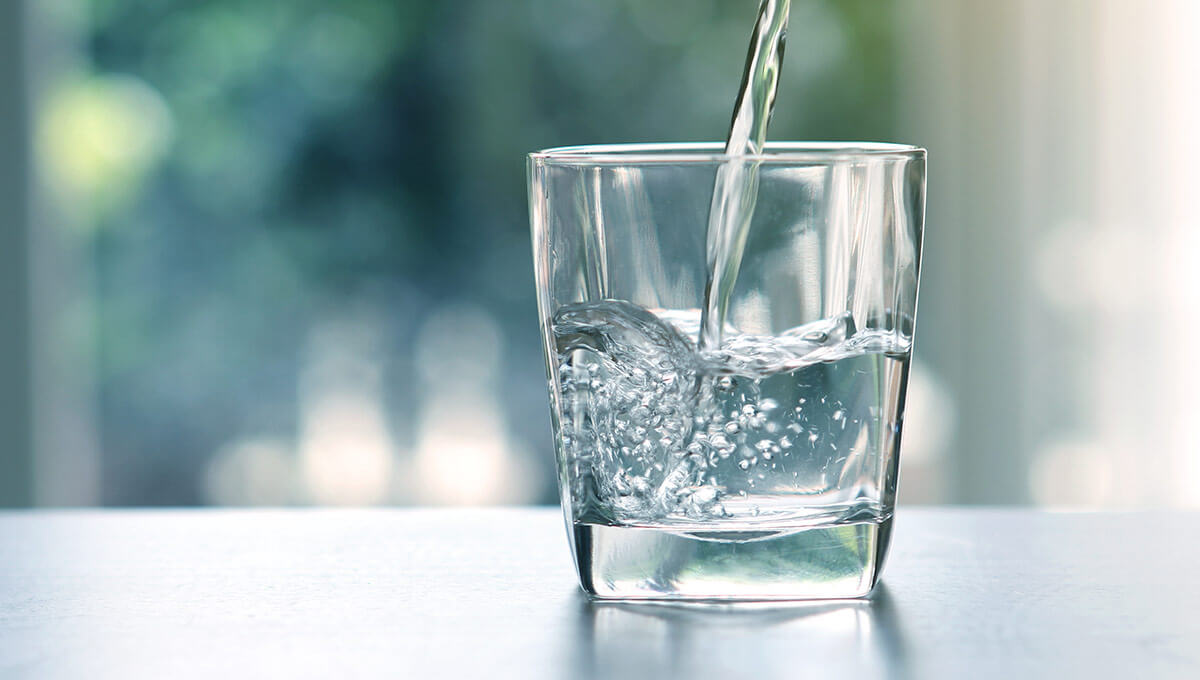
Ways to drink more water

Next to an intense workout routine and a well-balanced diet, athletes reach for dietary supplements to prevent vitamin, mineral, protein and calorie deficiency. One of the substances to be found in kitchen cabinets of people involved in sports is L-Carnitine. L-Carnitine is commonly known to help burn fat. However, research shows that it has more properties that are worth a closer look at. Why is L-Carnitine so important to those who do sports regularly and involve in bodybuilding? Below you can find several facts concerning the action, application and dosage of the substance.
L-Carnitine is responsible for the transport of fatty acids to mitochondria, where they are converted and used by the body to produce the energy needed for proper functioning. Additionally, L-Carnitine also removes toxic fatty acids from mitochondria, thus slowing down the ageing processes, and regulates the activity of thyroid hormones and testosterone.
In the weight loss process, the substance plays a major role by enhancing fat metabolism. This is what makes it so desirable by those who do sports.
The benefits of L-Carnitine are appreciated mainly by athletes and people who train regularly. They find the substance helpful in effective fat burning; which is how it has been advertised by pharmaceutical companies. Obviously, knowing that advertisements tend to promise more than the product offers, athletes and strongmen take lightly the information about the alleged capabilities of the compound. Although they are abundant.
A synonym for L-Carnitine is β-Hydroxy-γ-(trimethylammonio)butyrate. The compound naturally occurs in the human body in a free or esterified form. The body contains c.a. 20 g of L-Carnitine, which is accumulated mainly at the sites where it can be used directly, i.e. in the heart and in skeletal muscles. The rest is stored in the brain, sperm, and the sites of synthesis, meaning kidneys and the liver.
In the human body, the substance is produced from two amino-acids, which need to be delivered with diet, as they are not produced endogenously. Here, the exogenous amino-acids that are precursors to L-Carnitine are lysine and methionine. The highest synthesising capacity is found in the liver and the brain. Why here? Because these organs have all the enzymes needed for the synthesis.
Among other agents necessary as catalysts for the synthesis of L-Carnitine are iron, Vitamin C, Vitamin B 6 and Vitamin PP. With a diet that is low in these agents, L-Carnitine synthesis can cease.
The role of L-Carnitine in lipid metabolism was discovered in the 1960s. It was found then that high L-Carnitine concentrations increase fatty acid oxidation, as the substance participates in the transport of long-chain fatty acids to the energy factories of the cells (mitochondria) for oxidation metabolism and production of the energy needed for the proper functioning of the whole body. This shows that L-Carnitine is used by the human body as fuel.
The main sources of L-Carnitine in a daily diet are meat and fish. Vegetable foods contain only trace amounts of the substance or do not contain it at all. The conclusion is rather simple: a poorly balanced vegetarian diet, low in lysine and methionine, can cause L-Carnitine deficits, as the body lacks the substances needed to produce the substance and does not get them with food. Another reason for L-Carnitine deficits is lysine sensitivity to high temperatures. Lysine loses its natural properties when decomposed during frying or baking. Therefore, even if you think you consume sufficient amounts of products rich in lysine, the substance will not get in the right form to the cells within your body.
What L-Carnitine sources are the best? Beef, turkey breasts, chicken breasts, skimmed milk, natural yoghurt, cottage cheese, hard cheese, bananas, oranges and apples. These products should become a must in your diet.
Researchers have been analysing the properties of L-Carnitine for quite a long time now. In 2006, William J. Kraemer and his team carried out an interesting experiment on a group of young male gym-goers. Some of them were given 2 grams of L-Carnitine tartrate once a day, while the rest took a placebo. The study was conducted for 3 weeks.
After the experiment ended, the level of testosterone measured in the L-Carnitine group was higher by c.a. 4% pre- and 5% post-workout when compared to the placebo group. Additionally, those who took L-Carnitine had lower cortisol (by 7%).
How to conclude the experiment? It was noticed that L-Carnitine induced a growth in the number of androgen receptors (AR), which regulate muscle anabolism and are responsible for the male sex characteristic.
Few people know that L-Carnitine can protect muscles against peri-workout damage. Research shows that by stimulating blood circulation, the substance accelerates the removal of toxic metabolic residues. One of the tests performed was devoted to the impact of L-Carnitine on DOMS (Delayed-Onset Muscle Soreness). A group of men was given L-Carnitine for three weeks, with the control group receiving a placebo. The men performed exercises causing micro-damage to muscles.
The conclusions from the research clearly show that those who took L-Carnitine every day suffered less because of DOMS. Muscle soreness and tenderness in these subjects decreased significantly and they recovered faster.
Another study, performed on a group of 10 men, who received 2 grams of L-Carnitine tartrate every day, showed that the compound protects muscles against peri-workout damage. The men were subjected to MRI for concentration of creatine kinase, hypoxanthine, malondialdehyde and myoglobin. The study showed that muscle tissue after squats was damaged less in the L-Carnitine group than in the placebo group.
Supplementation with L-Carnitine is of particular importance during prolonged physical effort, as it reduces the use of muscle glycogen which is needed to produce energy. Additionally, L-Carnitine participates in the metabolism of branched-chain amino-acids (BCAAs). The leucine, valine and isoleucine present in the muscles are converted into a branched-chain form and then attach to L-Carnitine. The so produced complexes get to the circulatory system and are taken up by the liver, where they are oxidised or used as substrates in the process of gluconeogenesis.
As the properties of L-Carnitine are multi-faceted, the compound should not be associated exclusively with weight reduction. L-Carnitine plays a number of functions in the body, with its metabolites participating in numerous metabolic processes. The impact of L-Carnitine on androgen receptors, its capability to reduce the consumption of muscle glycogen or its antioxidant properties are known only to few. Which is a pity, as these properties have a potential to be broadly used in strength sports. Highly physically active people have particular demand for the substance. The recommended daily dose of L-Carnitine equals 500 to 2,000 mg.
The information below is required for social login
Sign In
Create New Account